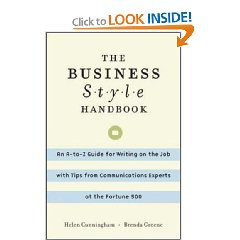There is major aspect of this book that I applaud, and it takes it from 3 to 4 stars: it is the single most effective statement I have seen that denounces U.S. “precision” warfare as not so precision afterall, because of the pre-planned (i.e. pre-meditated and culpable) deaths of tens of thousands of civilians as acceptable “collateral damage.” Although “total war” certainly applies to state on state warfare, the author correctly notes that killing civilians is neither beneficial nor acceptable when making war on dictators or terrorists. That has to be “man on man” and America is simply not capable of doing that–the military-industrial complex would cease to exist as we know it if we actually focused on funding ground truth intelligence at the neighborhood level, and the ability to send invisible snake-eater in and out to do justice on the basis of “one man, one bullet,” something I have long advocated.
The author is conventionally leftist and in harmony with Chalmer Johnson's and other critiques of the misadventures of the Central Intelligence Agency, but I find his critiques uninformed and sophomoric. Although I certainly agree with the author's short listing of CIA's analytical and operational failures over time, as someone who actually understands CIA and the US military better than the author, I have to wave the “CRAP” flag on several of this author's pages as they pertain to intelligence, pages 204 and 260 in particular.
The book ends with the observation that terrorism is like slavery, piracy, and genocide in that sufficient action must be taken to stop individual behavior along those lines, and the sensible suggestion that “evangelical Western capitalism must learn greater restraint and respect for other cultures” and that Western governments must eschew “gunboat diplomacy as self-defeating. Golly. The author may understand but does not demonstrate substantive understanding of the degree to which slavery, piracy, and genocide (18 active campaigns right now, a great deal more than the author's “still attempted in some corners of the world”) continue to be tolerated by Western governments.
There is nothing in this book helpful to crafting a new grand strategy balancing military, diplomatic, intelligence, cultural, and economic initiatives to “close the gap” (see my review of Thomas Barnett on “The Pentagon's New Map.”
Overall this double-spaced essay with no footnotes strikes me as gross misrepresentation. The bibliography is marginal, especially with respect to both modern terrorism and U.S. intelligence. The author took something he knows about–the history of conventional state military warfare–and dressed it up as being relevant to the Global War on Terror. Yes, but it could have been done in one page. This is a very labor intensive way to get to the obvious point, made much more intelligently by Jonathan Schell in “Unconquerable World”: there are not enough guns in the world to quell instability stemming from abusive government rule and immoral capitalism. Tony Zinni sums it up in one line: the faster you introduce food into an area, the more quickly the violence ends.












